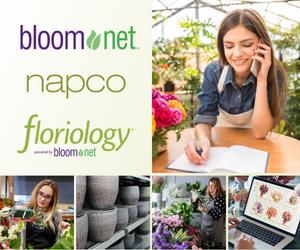For many young people across the United States, floristry isn’t a career option simply because they’re unaware of the opportunity or live in a community that doesn’t have the resources to support that dream—or both. For Hannah Bonham Blackwell and her husband Quilen Blackwell, changing that narrative is what drives Southside Blooms, a project of Chicago Eco House. The couple moved to inner-city Chicago 10 years ago with the goal of creating jobs for young people in the area.
They tried multiple skill avenues before flowers, but quickly realized that jobs for these skills were located too far away for these efforts to affect true change. Blackwell shared, “I remember that day when we looked at each other and realized that it was up to us to create the jobs. It felt like this insurmountable challenge. But when you move into a community, those problems essentially become your problems. You can’t just walk away and ignore what’s happening…When it’s literally happening on your block day in and day out, you feel a responsibility to keep pushing and keep trying to find a solution.”
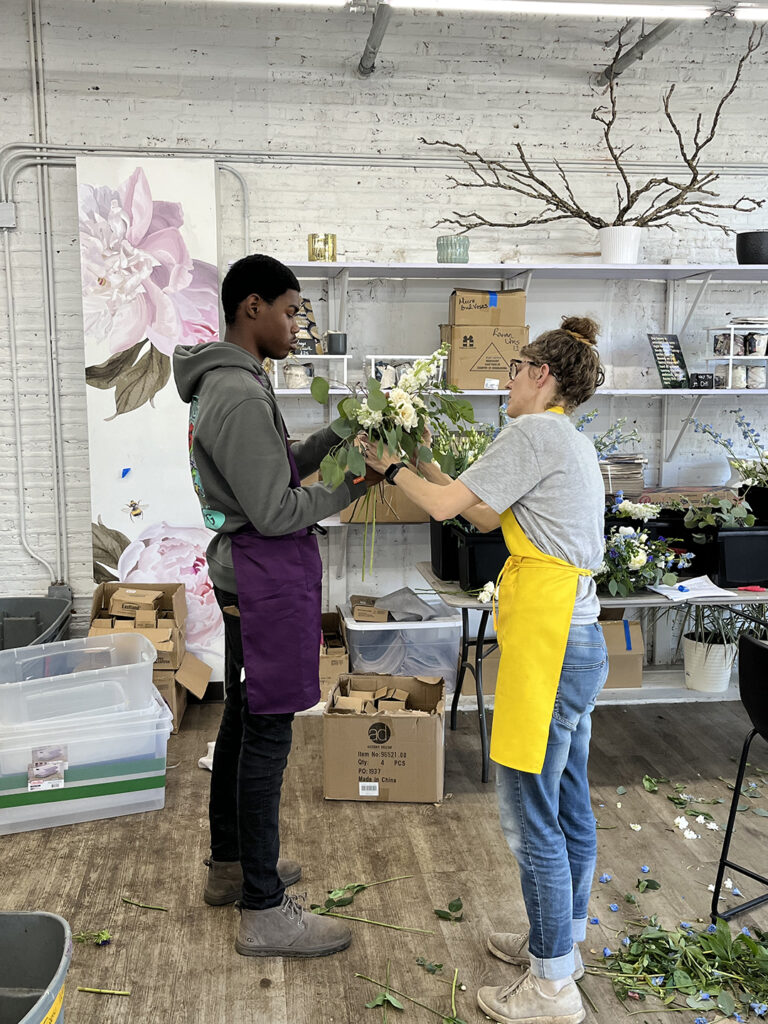
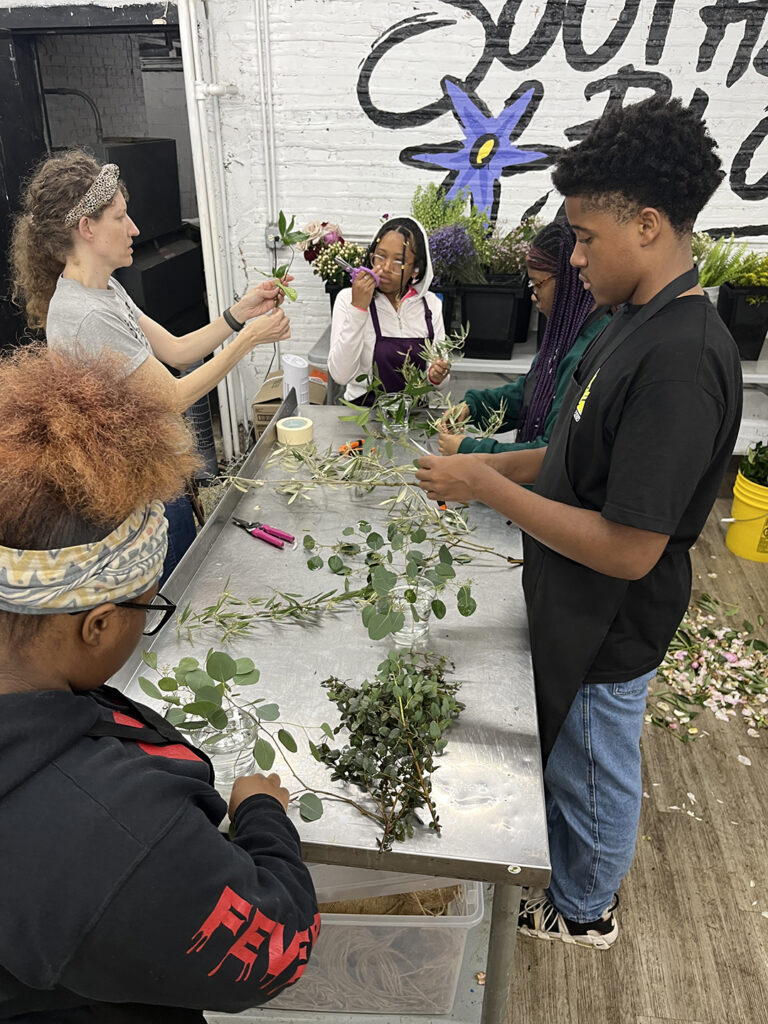
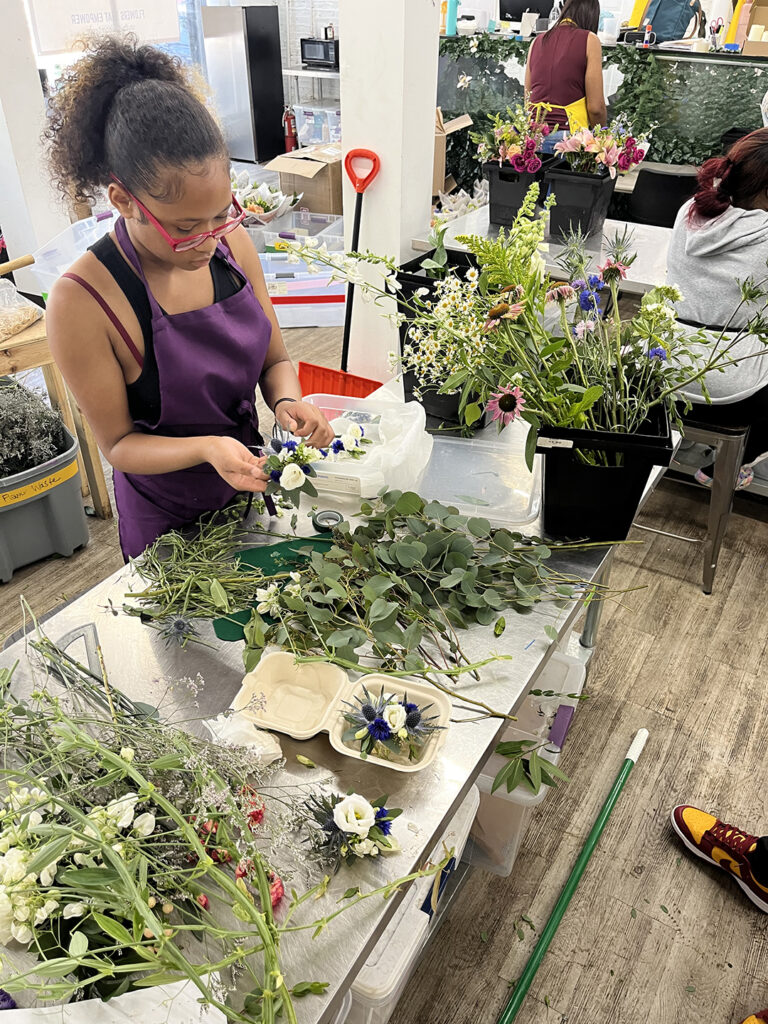
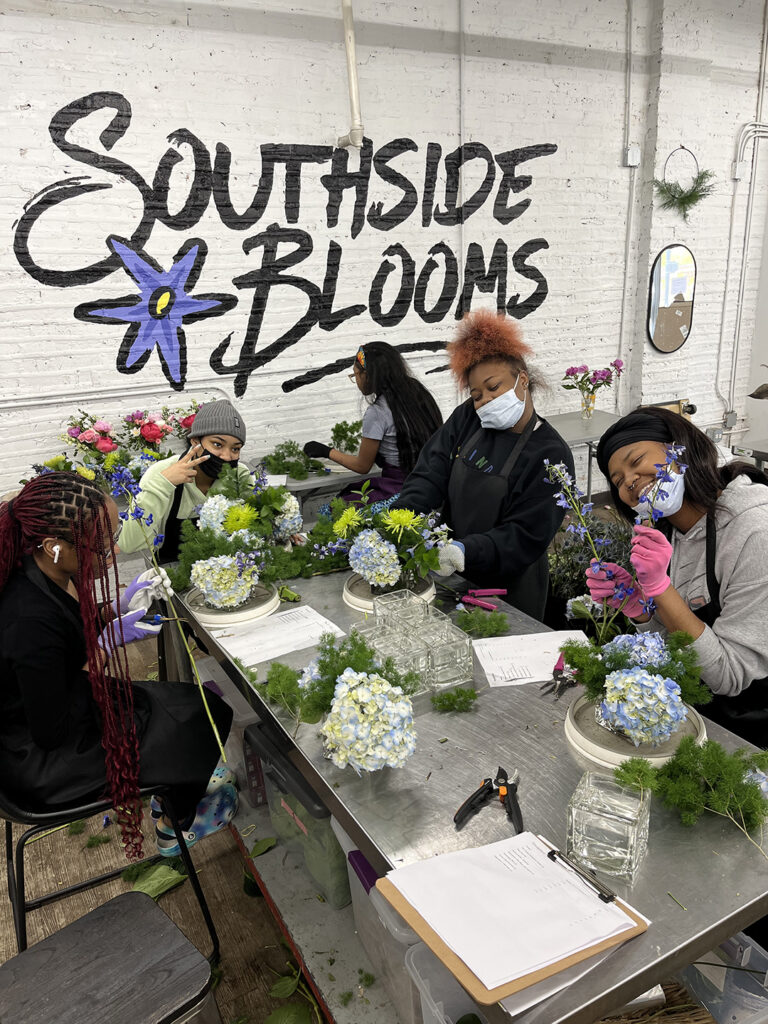
Although they’re not originally from the floral industry, the Blackwells found love and joy in flowers. Once they found that flowers were a way to reach young people in the community and generate local jobs, Southside Blooms hit the ground running. Their first flower location was on a vacant lot on their block—Blackwell pointed out that vacant lots are where a lot of drug activity happens in the community. Once they fenced in the area and started growing flowers, it “altered the feel of our block,” Blackwell said. “We were able to employ two kids from across the street who we’ve known since we moved onto the block. Knowing that we’re influencing their family’s well-being is wonderful.”
From that first vacant plot of land, Southside Blooms has grown significantly to five flower farms that create jobs in the local community. Those jobs teach the local youth about the floral industry and the other related fields that go along with it, like weddings and events. In fact, Southside Blooms’ employees work weddings in the area, which provides exposure as a participant rather than a spectator.
“We’ve been able to carve out some career paths for some of the youth that may not have other options, may not be college bound, or might have tried college but the cost was prohibitive,” Blackwell explained. “The cool thing is that we’re trying to create tracks in the floral industry for these youth that are from the inner-city that may not have had access to learning those skills or even being part of that world.”
Southside Blooms has a fulfillment center that delivers throughout the Chicagoland area and its suburbs. To support its business model, Blackwell described, “We’re pulling resources from all of these other well-resourced communities and bringing them into our community. A lot of traditional businesses are small businesses that rely on the foot traffic of that community that has disposable income to spend. We don’t have that level of money in our community. So, it was important for us to find a way to pull that money from other areas of the city that are very well-resourced to continue to feed our program, open more spots for the youth, and get them exposed to other areas of the city.”
For 2024, Southside Blooms has plans of opening a fulfillment center on the West Side of Chicago, “which is in a community that faces a similar situation as our community in Englewood. It was the first neighborhood that I moved into in the inner-city back in 2011, before I even met Quilen. We realize that the youth in that community live too far away to come all the way to the South Side for a job. The space we are opening on the West Side is quite a bit bigger than our fulfillment center here on the Southside, and part of that was intentional. We always want to be pushing ourselves and open our minds to what we can be, especially when you’re talking about saving the lives of youth. Every single life has value and if we can draw one more person in, that’s worth it.”
While they’re proud of all their business accomplishments, Blackwell is most proud of when they get new youth through the door. Blackwell added, “When there’s 20 youth from my neighborhood that are working with flowers and building beautiful designs and making money…to me, that’s always going to be the greatest accomplishment.”

Robin McLaughlin
Robin is a managing editor and writer for Floriology


